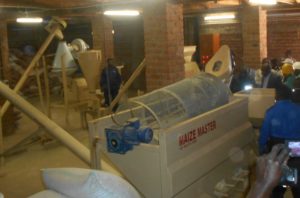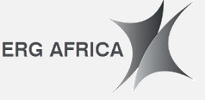 The Sakania community, in southern DRC near the Zambian border, entered a new era of food security and trade opportunities on 25 July 2018. All thanks to years of intense effort by Frontier Mine and its stakeholder engagement policy.
The Sakania community, in southern DRC near the Zambian border, entered a new era of food security and trade opportunities on 25 July 2018. All thanks to years of intense effort by Frontier Mine and its stakeholder engagement policy.
It’s a story that stretches back to 2012 when the south-east Congo climate created a maize shortage. This led to the formation of Sakania farmers (more or less 250 families) in a UNAPS (Union des Associations des Producteurs Agro-Pastoraux de Sakania) agricultural cooperative.
Frontier Mine started off by developing the infrastructure for a mill and bakery in the Sakania community. The next step was three years of intense negotiations to secure a low voltage feed from SNEL (Société Nationale d’Electricité), to these establishments. At the inaugural ceremony on 25 July, two electrical substations, transformers and mill equipment were formerly handed over to the Sakania community. This signalled the end of an imbalance whereby food security had to be sourced from Zambia.
Among those at the celebration and endorsing the project were Olivier Kakoshi (Haut Katanga Provincial Minister of Rural Development), the Administrator of the Territory of Sakania and a representative of SNEL, the national company providing electricity. The Frontier Mine delegation included John Robertson (General Manager, Frontier Mine), the technical team and the CSR and Security Departments.
Going forward, the UNAPS cooperative will be structured and managed for ultimate effectiveness in order to improve its sustainability. It is anticipated that the 250 hectares under the management of UNAPS will yield five to six tons of maize per hectare.
